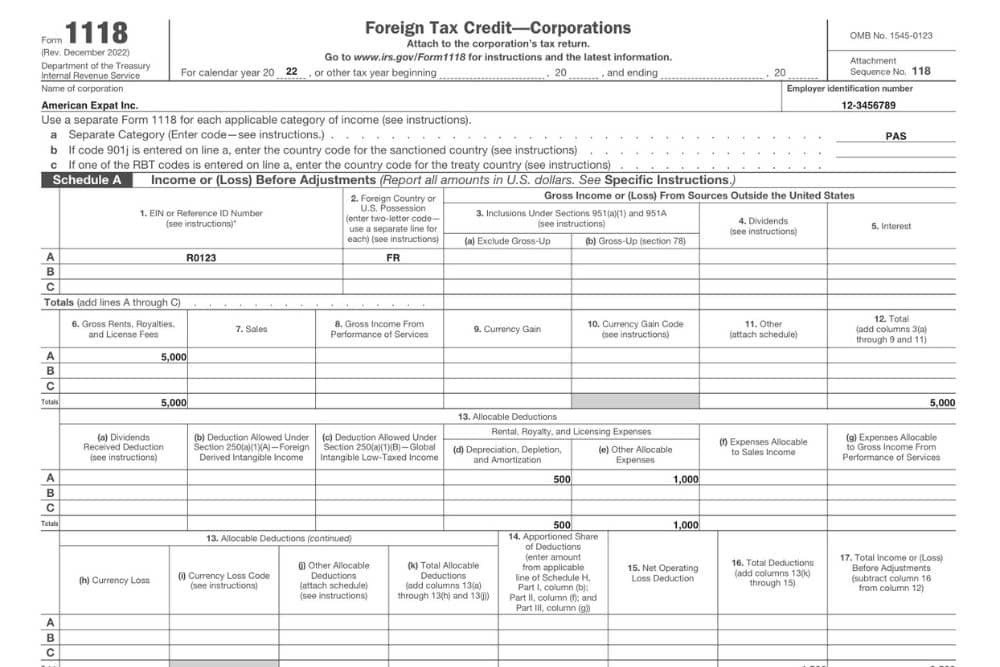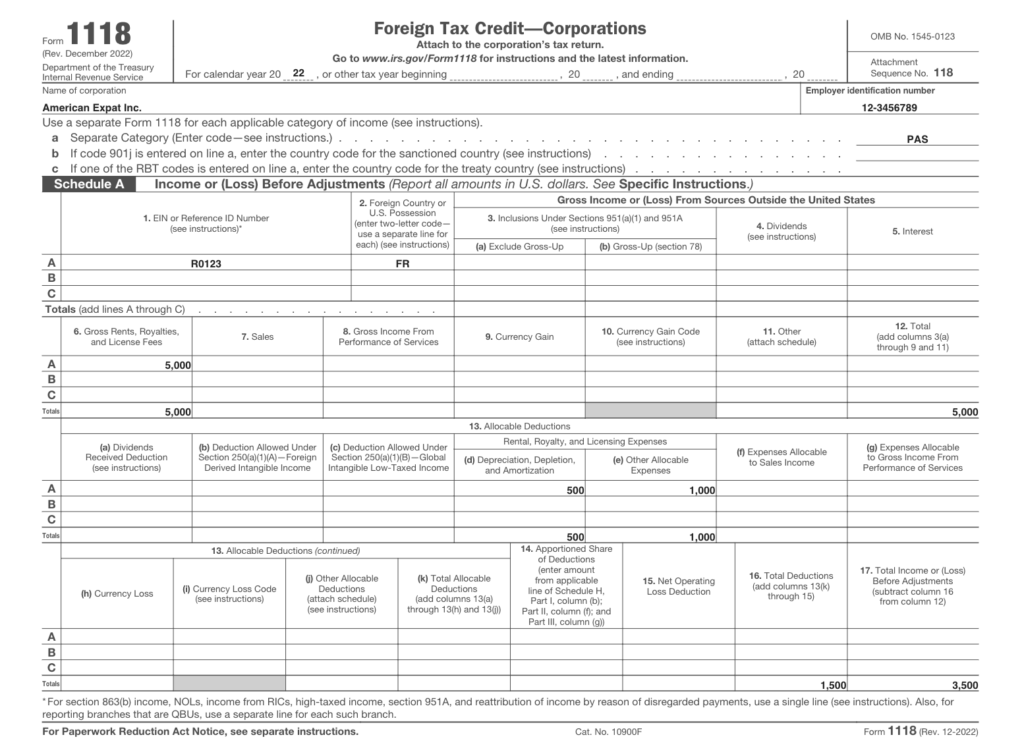Form 1118: Claiming the Foreign Tax Credit for Corporations

US corporations that operate overseas often accrue taxes both at home and abroad. Fortunately, you can use IRS Form 1118 to claim the corporate Foreign Tax Credit. This will help you avoid double taxation and reduce your US tax bill.
Key Takeaways
- The corporate Foreign Tax Credit helps US corporations avoid double taxation on their foreign income.
- To claim the Foreign Tax Credit for your corporation, you must file IRS Form 1118.
- Form 1118 is due on the same deadline as your corporate tax return (April 15).
What Is the Foreign Tax Credit for Corporations?
The corporate Foreign Tax Credit is a tax benefit for corporations operating overseas. By filing Form 1118, you can claim a dollar-for-dollar credit based on any foreign income taxes you have accrued. You can then use this credit to reduce your US tax bill by the same amount.

The purpose of this credit is to prevent double taxation of your foreign profits. Otherwise, you might have to pay taxes twice on the same income—once in a foreign country and again in the US.
The Foreign Tax Credit for Corporations only applies to income taxes, not other forms of taxation, such as value-added taxes or sales taxes. This is true even in countries where a value-added tax is used as a substitute for income taxes.
The corporate Foreign Tax Credit can be carried back one year or forward up to 10 years. This can be useful when planning your future tax strategy!
What Is Form 1118?
Form 1118 lets corporations report the income taxes they owe to a foreign government. That way, they can reduce their US corporate taxes by the same amount. In a sense, this allows you to exempt your foreign corporate income from US taxation.
Who Must File Form 1118?
Since Form 1118 is not mandatory, no one is required to file it. However, failing to claim the corporate Foreign Tax Credit could leave you vulnerable to double taxation. That would mean paying more taxes than necessary—which is always worth avoiding!
Form 1118 Instructions
Filling out Form 1118 can be complicated and time-consuming. The IRS estimates that it will take about 25 hours to complete. That’s because the form is 14 pages long and requires extensive information about:
- Your corporation
- Any income the corporation owes foreign taxes on
- All applicable deductions or credits
Furthermore, you’ll have to separate the income into multiple categories and perform a wide variety of complex calculations to determine how much total credit you can claim. Therefore, the Form 1118 instructions
As you might expect, most American business owners living abroad hire an expat tax expert when filing Form 1118. Expat taxes are nothing if not complicated—and the Foreign Tax Credit for Corporations is no exception. Without the right expertise, it’s easy to make a mistake and end up paying more than you really owe.

Keep meticulous records of all your corporation’s foreign taxes, including tax receipts, tax returns, and any other relevant documentation. This will make it easier for you and your accountant to file your Form 1118 accurately and on time.
When Is Form 1118 Due?
Form 1118 is due at the same time as your corporate tax return: April 15. To file Form 1118, you will need to attach it to your corporate tax return and submit both together.
When you live in the US, tax day is simple: April 15th! When you move abroad, it’s not so straightforward! Learn about all the expat deadlines and extensions you need to know to file.

Have Questions About Form 1118? Get Expert Help with Your Expat Taxes
We hope this guide has helped you understand Form 1118 and the Foreign Tax Credit for Corporations. If you still have questions, we would be happy to answer them all.
Contact us, and one of our customer champions will gladly help. If you need very specific advice on your specific tax situation, you can also click below to get a consultation with one of our expat tax experts.



